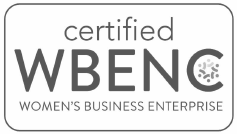The case for having a social media policy can be summed up in four words – better safe than sorry. As companies dedicate an increasing amount of resources to social media marketing, there are more ‘what ifs?’ What if an employee decides to use their personal Facebook account to network with clients? What if a community member posts an inflammatory comment on your Facebook page? A strategically-conceived policy can help to answer these questions and ensure that any issues that arise are handled appropriately.
Unfortunately, a recent study by PayScale revealed that only 53% of companies have a formal social media use policy. Organizations should take the time to develop a social media policy that addresses the ‘what if’ and answers the following key questions:
What constitutes appropriate content?
Unfortunately, community members, employees and management may not share a common definition of appropriate content. By developing a social media policy, companies can ensure that everyone is playing by the same rules and that brand ambassadors have a clear understanding of what constitutes appropriate use. Using this policy as a guide, organizations can then manage the expectations of their online communities by including a brief description of the platform’s intended use as part of their profile. For example, ‘The Widget Factory’s Facebook page is an online forum for members of the widget community to exchange stories and ideas. To keep the community enjoyable for all, we ask that you not use profane language in your posts and comments.’
How will your company handle the personal-professional hybrid?
Let’s face it. The lines between professional and personal life are blurred. Many of us answer work emails from our personal smartphones, weekends for some include time in the office or time spent working remotely, and many people don’t have dedicated Facebook and Twitter accounts for their personal and professional lives. This blend of personal and professional activities alone is reason enough to develop a social media policy.
How will social media be used to communicate during a crisis?
When disaster strikes, the last thing any organization needs is people on the inside taking to their personal social media platforms to share opinions on the day’s events. Take the time to let your team know how social media will be handled in a crisis and what the company’s policy is on divulging crisis-related information.
Who is authorized to represent the brand on social media?
Oftentimes, we work with nonprofit organizations that find themselves with multiple social media accounts for the same platform, all of which were started by well-meaning individuals. Unfortunately, this makes it difficult to build a centralized community and can lead to mixed messaging. It also means they sometimes find themselves with accounts that nobody else has access to. Within your social media policy, clearly identify who is authorized to serve as a brand ambassador. Take the time to outline criteria for who can and cannot create and maintain individual brand ambassador accounts for the company and what the terms are for operating such accounts.
Is updating Facebook okay at work?
Depending on the type of company, the answer will vary. At a public relations, advertising or social media marketing agency, the answer is most likely ‘yes.’ However, some companies do not permit social media use at work. Instead of leaving employees guessing, take the time to include a section on social media use at work.
When developing a social media policy, be sure to use clear, concise language and confirm that all employees have read and agreed to the terms of the policy. This will not only reduce the likelihood of an incident, but ensure that a protocol is place for addressing policy violations and managing the fallout of unflattering or inappropriate online commentary.

